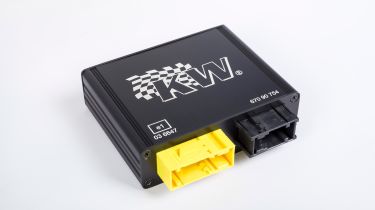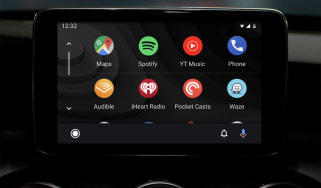Car ECU explained: What it does, faults and repair costs
Your car’s ECU is vital for controlling the engine – we explain how it works and what to do if it goes wrong

Modern car engines use many complex electrical systems to run smoothly and the ECU, or Engine Control Unit, is the computer that is used to monitor and control them. It’s integral to the function of your car’s engine, so a faulty ECU can result in a whole host of problems that affect performance and fuel economy, often indicated by an engine management light.
There could be other tell-tale signs if your ECU is faulty, including misfiring, increased fuel consumption and ‘limp home’ mode. Fortunately, a faulty ECU can be replaced or repaired in most cases, but the difficulty and cost of repair will vary. Most new car warranties will cover a faulty ECU, so it’s worth investigating with your warranty provider.
What does an ECU do?
The ECU (engine control unit) is essentially the engine’s brain. It’s a digital computer that sends and receives electrical signals to and from the various systems that allow an engine to run correctly. It plays a vital role in critical tasks, such as engine idle speed, accelerating and managing emissions, performing millions of calculations per second to ensure the engine is running optimally.
For example, the ECU ensures the correct amount of fuel is being sent to the engine – something that’s vital for performance and efficiency. A sensor will detect if the engine is receiving too much fuel, in which case the ECU will make tiny adjustments to make sure the correct amount of fuel is being sent.
How do you know if your ECU is faulty?
Like any component in your car, the ECU can develop a fault or break entirely. It’s a delicate piece of equipment made up from complex electronics, making it susceptible to water damage, wear and tear, and short-circuiting.
If your car’s ECU develops a problem, the engine warning light should illuminate on the dashboard. Bear in mind that the engine warning light can appear for various reasons, so it’s essential to have your vehicle checked over by a professional if it appears. Read our check engine light guide for the most common causes.
Other symptoms of a broken or damaged ECU include engine misfires, stalling, poor fuel economy, reduced performance, difficulty starting the engine and the vehicle entering ‘limp home’ mode. If any of these issues begin appearing while driving your car, it’s crucial to have your vehicle inspected by a professional to diagnose any problems and prevent any issues from worsening.
How much does it cost to replace an ECU?
ECUs are complicated bits of kit, and the total cost of a repair or replacement ECU will vary drastically depending on the make and model of your car. For a cheaper car such as a typical family hatchback, the price of an ECU replacement could range between £150 and £500 plus labour costs. An ECU replacement could cost thousands of pounds on a high-end luxury or specialist car.
If your vehicle still meets the terms of its warranty, the cost of replacing a faulty ECU may be fully covered by the vehicle’s manufacturer or the warranty provider. It’s worth checking your policy details to see whether the ECU is covered before having a replacement fitted at your own expense.
While you might be able to pick up a used replacement ECU online for a reasonable price, it’s worth bearing in mind that Engine Control Units are highly complex pieces of equipment that require professional tuning to work optimally with your specific vehicle. A cheap, used example of an ECU might seem like an attractive solution, but there’s no guarantee that it’ll work as the manufacturer intended.
If your vehicle has a faulty ECU, we recommend contacting a specialist with experience conducting ECU replacements and repairs. The ECU is a highly complex piece of equipment that requires specialist knowledge for installation.
Can an ECU be repaired?
If there’s an issue with your ECU, it’s possible to have it repaired instead of replaced in some cases. This service is unlikely to be offered by the manufacturer, but there are plenty of third-party experts who can inspect, diagnose and repair an ECU. Prices vary depending on the complexity of the problem, so it may not always be cheaper than having it replaced entirely.
Frequently Asked Questions
The ECU, or engine control unit, is a computer used to control the various electrical systems needed to run a car engine correctly, including the fuel injection and fuel ignition systems.
Car technology made simple
- Car lights and headlights: complete guide
- Car cameras: how cameras are making cars safer
- Dash cams: what are they and how do they work?
- What is cruise control and adaptive cruise control?
- Electronic handbrakes and Auto-hold: a complete guide
- What is a car immobiliser and does my car have one?
- What is Alcantara?
- What is kerbweight?
- What is a space saver wheel?
- What is regenerative braking?
- What is gross vehicle weight?
- What is bluetooth?
- What is a head gasket?
- What are spark plugs and glow plugs?
- What are brake pads and discs?
- What is a supercharger?
- What is lumbar support?
- What is a car’s exhaust system and what can go wrong?
- What is air suspension, and how does it work?
- What are adaptive dampers, and how do they work?
- What is keyless entry and keyless start?
- eCall explained
- What is a head-up display?
- What is Waze?
- What is Mirrorlink?
- What is what3words?
Recommended

In-car safety assistance systems leaving drivers confused and dissatisfied

What is Android Auto? Apps, music and new gaming features
Most Popular
Tips & advice

Car dashboard warning lights: what does each symbol mean?

Electric car charging stations: public networks, charger types, apps and maps







